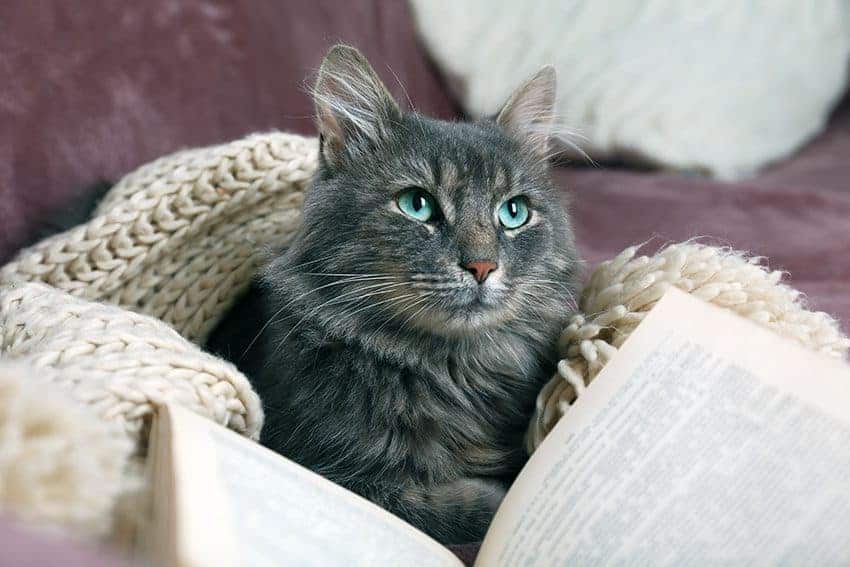
While cats use a range of vocalisations such as yowling, hissing and growling to communicate with each other, meowing isn’t one of them. This is a behaviour they’ve adopted just for humans. But what are they trying to tell us?
Cats communicate by a combination of scent signals, body postures and vocalisations. While cat scenting operates on a level way beyond the capability of the human nose, and we often miss the subtle notes of feline body language, meows get our attention – which is exactly as our cats want it.
Although kittens meow to their mothers, adult cats don’t meow to other cats – probably because their mothers stopped responding once they were weaned. Grown up felines reserve this vocalisation purely to communicate with humans.
“Cats vocalise so well to us because they’ve learned that we humans are really not all that on the ball in figuring out what the tail swish means, what the ear twitch means,” says Gary Weitzman, president and CEO of the San Diego Humane Society and author of How to Speak Cat. It’s a strategy that works. Essentially, meows are demands: Let me OUT. Let me IN. Pet me. Play with me. FEED me! As a cat becomes more insistent, his meows may grow more strident and lower-pitched until he gets the response he requires from his human.
Which cat is the chattiest of them all?
Not all cats are vocal. Persians tend to be rather quiet, whereas Siamese and Oriental-type breeds are especially talkative, enjoying long, drawn-out conversations where they insist on having the last word. Whether your cat is constantly chatty, or just likes to occasionally chip in, remember that they are meowing for a reason. Never dismiss the cat’s meow. After all, domestic cats have spent thousands of years cultivating meowing to better communicate with their human friends, so it’s only fair that we pay attention. So, what are our cats saying?
Hello human
Cats often give a verbal greeting to their human when they come home, or even when they just meet them in the house.
I require some attention
Despite what some people think, cats don’t like being alone too much. Cats often meow to initiate play, petting, or to get you to talk to them. Spend quality time each day with your feline friend, playing, grooming, and talking to her.
I want food and I want it now
Some cats meow every time a person walks in the kitchen, hoping to get a bite to eat. And many cats become very vocal when it gets close to their feeding times.
I’m finding things stressful
Cats that are experiencing stress often become more vocal. A new pet or baby, a move or changes to the home, an illness or the loss of a loved one can turn a quiet cat into a talker. Try to discover what is stressing your pet and help her adjust to the change by giving her extra attention and quiet time to soothe her.
I’m feeling frisky
If your cat isn’t spayed or neutered, then you’re going to hear a lot more noise. Females yowl when in heat, and males yowl when they smell a female in heat. Getting your pet neutered will prevent this.
I’m getting on a bit
Cats, just like people, can suffer from deteriorating eyesight, mental confusion, or cognitive dysfunction, as they age. They may become disoriented and cry plaintively for no apparent reason, especially at night. Your vet can prescribe medications that help with these symptoms. Hearing loss can also cause a cat to vocalise louder than usual because she can’t determine her volume.
I’m not feeling well
There are numerous diseases that can cause a cat to feel hunger, thirst or pain, including overactive thyroid or kidney disease, which can result in excessive meowing. If your cat exhibits this behaviour, take them to the vet for a thorough check-up.
Sources: pets.webmd.com, independent.co.uk, humanesociety.org, thespruce.com














